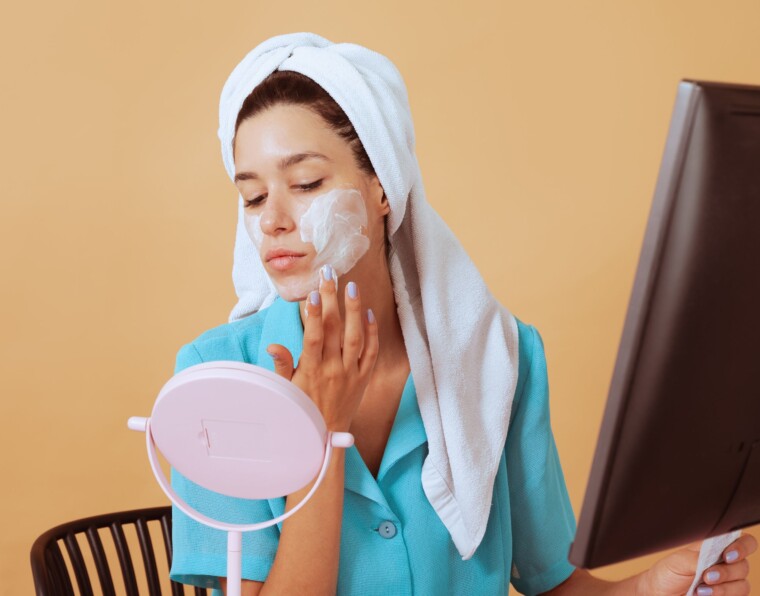Having beautiful skin is something that many of us strive for. There are many products on the market that promise to help us achieve this goal, but one of the most powerful and natural options is rosehip oil. This oil has been used for centuries for its healing and nourishing properties, and its popularity is only growing. In this article, we’ll explore the amazing benefits of rosehip oil for skin and how to use it correctly.
What is Rosehip Oil?
Rosehip oil is a type of cold-pressed oil made from the seeds of the rose bush. The oil is a rich source of essential fatty acids, vitamins, and antioxidants that nourish and protect the skin. It has a light, non-greasy texture and a mild scent that makes it easy to use.
Benefits of Rosehip Oil for Skin
There are many benefits of rosehip oil for skin. From anti-aging properties to hydration and protection, it’s a powerful natural product that can help you get the healthy skin you’ve always wanted.
In the world of skincare, natural oils have been gaining popularity for their potent healing and rejuvenating properties. One such oil that has been making waves is rosehip oil. Extracted from the seeds of wild rose bushes, this oil is a treasure trove of nutrients that can work wonders on your skin. But don’t just take our word for it; let’s dive into the science behind the magic of rosehip oil.

Anti-Aging Properties
Rosehip oil contains high levels of antioxidants that help fight free radicals that cause premature aging. It also helps to reduce wrinkles and fine lines, leaving your skin looking and feeling more youthful.
Anti-Inflammatory Properties
Rosehip oil is a natural anti-inflammatory that can help reduce redness, irritation, and swelling. It’s especially beneficial for those with sensitive skin or conditions like eczema and psoriasis.
Moisturizing and Hydrating
Rosehip oil is an excellent moisturizer that helps to keep the skin hydrated and balanced. It helps to lock in moisture and improve skin texture, giving you a healthy glow.
Treats Hyperpigmentation
Rosehip oil is also known for its ability to reduce dark spots and hyperpigmentation. It helps to even out the skin tone and lighten discoloration, giving you a brighter complexion.
The Power of Rosehip Oil
According to a study published in the International Journal of Molecular Sciences, rosehip oil is rich in essential fatty acids, vitamins, and antioxidants that can help improve skin health. The oil is particularly high in linoleic acid and pro-vitamin A, both of which are key players in cell regeneration and skin elasticity.
The research suggests that rosehip oil can help reduce signs of aging, such as wrinkles and age spots, and can also aid in treating various skin conditions, including eczema and rosacea. Furthermore, the oil’s anti-inflammatory properties can help soothe irritated skin, making it a great natural remedy for people with sensitive skin.
Nanoencapsulation: Enhancing the Benefits of Rosehip Oil
A study from SpringerLink introduces an innovative way to enhance the benefits of rosehip oil through a process called nanoencapsulation. This process involves encapsulating the oil in tiny, nanometer-sized capsules, which can improve the stability of the oil and increase its contact with the skin.
The nanoencapsulation of rosehip oil not only prolongs the oil’s effect on the skin but also protects the oil from UV-induced oxidation, thereby preserving its beneficial properties. The study concludes that nanoencapsulated rosehip oil could be an effective ingredient in topical skincare formulations.
Rosehip Oil: A Versatile Addition to Your Skincare Routine
Whether you’re looking to combat signs of aging, soothe irritated skin, or simply want to give your skin a healthy glow, rosehip oil could be the answer. This natural elixir can be used on its own or incorporated into your favorite skincare products.
Remember, everyone’s skin is different, and what works for one person may not work for another. Always do a patch test before trying a new skincare product, and consult with a dermatologist if you have any concerns.
How to Use Rosehip Oil?
Using rosehip oil is easy and can be done either as part of your daily routine or as a targeted treatment. The key is to choose the right type of oil and to be consistent with your application.
Choosing the Right Rosehip Oil for Skin
When choosing a rosehip oil, it’s important to make sure that it’s organic and cold-pressed. This will ensure that you’re getting the purest form of the oil with all its beneficial properties.
How to Apply Rosehip Oil?
Rosehip oil should be applied directly to the skin after cleansing. Gently massage it into the face and neck using circular motions. You can also use it as a spot treatment or add a few drops to your favorite moisturizer for an extra boost of hydration.
Benefits of Rosehip Oil for Skin: Final Thoughts
Rosehip oil is an amazing natural product that can help you achieve beautiful, healthy skin. From anti-aging properties to hydration and protection, it’s a great way to nourish and protect your skin. With the right type of oil and consistent application, you can enjoy all the amazing benefits rosehip oil has to offer.
I’ve discovered that rosehip oil possesses remarkable qualities for mature skin as well. Its rich blend of antioxidants, vitamins, and essential fatty acids is renowned for its anti-aging effects. Personally, incorporating rosehip oil into my skincare routine has been instrumental in maintaining a youthful and radiant appearance. The astonishing impact it has had on my youthfulness with Rosehip oil might just take you by surprise.
During my battle with acne, rosehip oil emerged as an unexpected savior. I was astounded to find that this natural gem has the ability to balance oily skin and diminish acne scars. Remarkably, this isn’t merely my personal observation, but a well-supported claim backed by extensive research. Allow me to share some enlightening insights into the advantages of Rosehip oil for skin prone to acne.
Throughout my skincare journey, I have crafted a tailored regimen centered around rosehip oil. When used correctly, its abundance of nutrients can result in an unparalleled radiance for your skin. It would be my pleasure to impart my knowledge on the optimal use of Rosehip oil for achieving a luminous complexion, as I firmly believe everyone deserves to exude that inner glow.
From moisturizing dry skin to alleviating hyperpigmentation, rosehip oil boasts a diverse range of benefits. Over time, I have personally witnessed the transformative power of this unassuming oil. If you’re curious as to why I wholeheartedly endorse it, I invite you to peruse my comprehensive article on the astounding merits of Rosehip oil for skin.

As with any skincare product, it’s crucial to be aware of potential side effects. Even natural products like rosehip oil can trigger reactions in certain individuals. In my pursuit of promoting well-informed skincare decisions, I have taken the liberty to outline the potential side effects of Rosehip oil for skin.
The quality of the rosehip oil you select can make an immense difference. In my personal experience, organic rosehip oil has consistently outshined others in terms of effectiveness and purity. In this publication, I delve deep into the rationale behind why organic Rosehip oil is the superior choice for your skin.
Furthermore, rosehip oil isn’t limited to facial applications alone. I have achieved fantastic results by incorporating it into other areas of my body as well. For those grappling with stretch marks, I have shared my tried-and-tested method on how to utilize Rosehip oil for addressing this concern.
Dealing with dark spots can be an exasperating skincare issue, but rosehip oil has been a true game-changer in my life. Its natural lightening properties have the potential to bestow upon you a more even skin tone. Allow me to recount my personal journey with Rosehip oil for combating dark spots.
Remember, rosehip oil isn’t solely a marvelous addition to your skincare routine; it works wonders for your lips too. It ensures their softness, suppleness, and shields them from dryness and chapping. I have explored the question “Is Rosehip oil beneficial for your lips?” in a dedicated article where I also extensively discuss the eight benefits of Rosehip oil for skin.
FAQ
Q: Will rosehip oil clog pores?
A: Rosehip oil is considered non-comedogenic, which means it has a low likelihood of clogging pores. It has a relatively light texture and absorbs well into the skin, making it suitable for most skin types, including oily and acne-prone skin. However, as with any skincare product, individual reactions may vary. If you have particularly sensitive skin or are prone to breakouts, it’s always a good idea to patch test the oil on a small area of your skin before applying it to your face.
Q: Do I put rosehip oil before or after moisturizer?
A: The general recommended order is to apply rosehip oil after moisturizer. This is because moisturizers are formulated to provide hydration and seal in moisture, acting as a barrier on the skin. Applying rosehip oil afterwards allows it to penetrate deeply and provide additional nourishment and benefits. However, skincare routines can be customized based on personal preferences, and some individuals may find that applying rosehip oil before moisturizer works better for their skin.
Q: Does rosehip oil affect estrogen?
A: There is currently no scientific evidence suggesting that rosehip oil directly affects estrogen levels in the body. Rosehip oil is derived from the seeds of the wild rose bush (Rosa canina) and is primarily composed of fatty acids, vitamins, and antioxidants. While it offers various skincare benefits, it is unlikely to have an impact on hormone levels.
Q: Is rosehip oil safe around the eyes?
A: Rosehip oil is generally safe to use around the eyes. It is often recommended for its potential to reduce the appearance of fine lines, wrinkles, and dark circles in this area. However, it’s important to be cautious and avoid getting the oil directly into the eyes, as it may cause temporary irritation. When applying rosehip oil near the eye area, use gentle, upward motions and ensure that the product is well-absorbed before opening your eyes. If you have specific concerns or sensitivities, consulting with a dermatologist or healthcare professional is always advisable.




